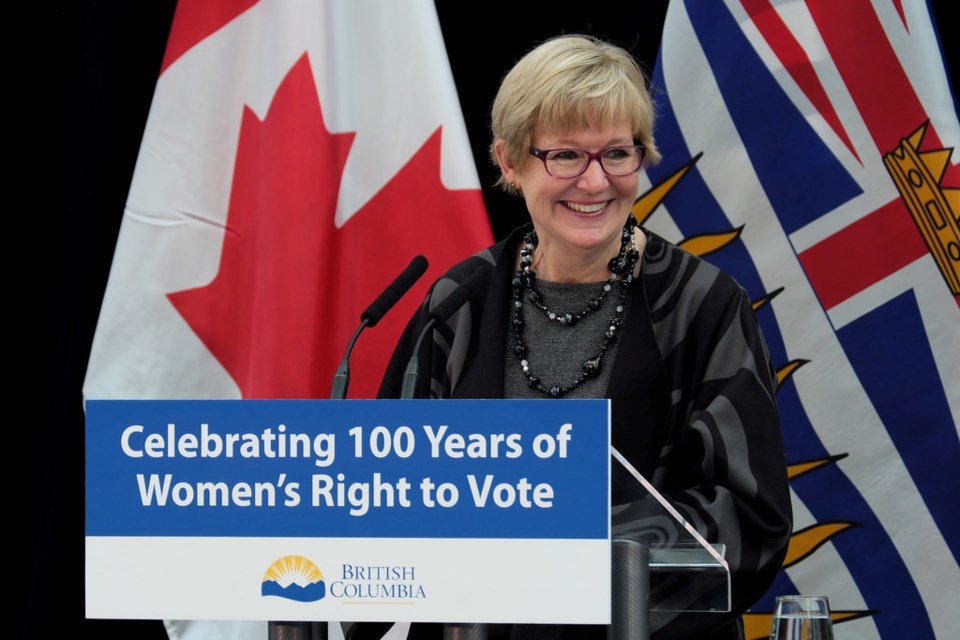One hundred years, one month, four days — keep repeating that to yourself on May 9 if you’re a woman and lackadaisical about going out to vote in the provincial election.
It’s the length of time that’s passed since April 5, 1917, when women won the right to vote and hold provincial office in B.C.
Elections, in one form or another, have been around since ancient times. If the rules and procedures have changed over the centuries, many of the root words of the terms we use were formed in that era. The Latin “eligere,” to select, is the source of elect, election, electors. Someone running in an election is called a candidate, “candidatus” in Latin, from the white toga worn by an ancient Roman seeking office. Vote, too, has its source in Latin. It comes from “votus,” past participle of “vovere,” to promise (same source as vow).
Before an election, lots of energy goes into the campaign, a word that derives from the Latin “campus,” field. In the 17th century, campaign referred to the army’s move, come summer, from enclosed winter quarters to the open field. Campaign in the political sense came into use in the early 19th century
Up until fairly recently, you couldn’t take it for granted that everyone who had the right to vote knew how to read and write, and thus various voting methods were used during elections. When an ancient Greek voted, he dropped a pebble into the vase identified with a particular candidate. This system led to the formation of the words psephocracy and psephology, based on the Greek word “psephos,” meaning pebble. Pottery shards, too, were used for a type of vote in ancient Greece. Known as “ostraka,” the shards would be inscribed with the name of a citizen to be banished— we derive the English word ostracise from this practice.
A few centuries ago, when men voted in America, they stood up, or raised their voice or hand, to declare their choice. Paper ballots were a thing of the future, although the word wasn’t. Ballot comes from the Italian “ballotta,” which derives from “pallotta,” meaning little ball, because originally the voting counters were usually small roundish objects, not just pebbles but also various legumes such as peas and beans. In medieval Florence, you cast a black bean for “yes,” a white bean for “no.”
Another word that bounces around a lot during election time is poll. Its origins are in Middle English, where it meant head, and by extension person, individual. By the 17th century, it could mean a head count, or a counting of votes, the current sense of poll.
Suffrage comes from the Latin “suffragium,” meaning vote, support. In the 14th c. suffrage referred to intercessory prayers. By the late 18th c. it had acquired the sense of the political right to vote. A person who had the right to vote was described as enfranchised, from the Old French “enfranchir,” to set or make free.
Which brings me back to April 5, 1917. Voting is now a responsibility. For B.C. women a century ago it was something else — it was a clamorous victory.
Sabine Eiche is a writer and art historian



